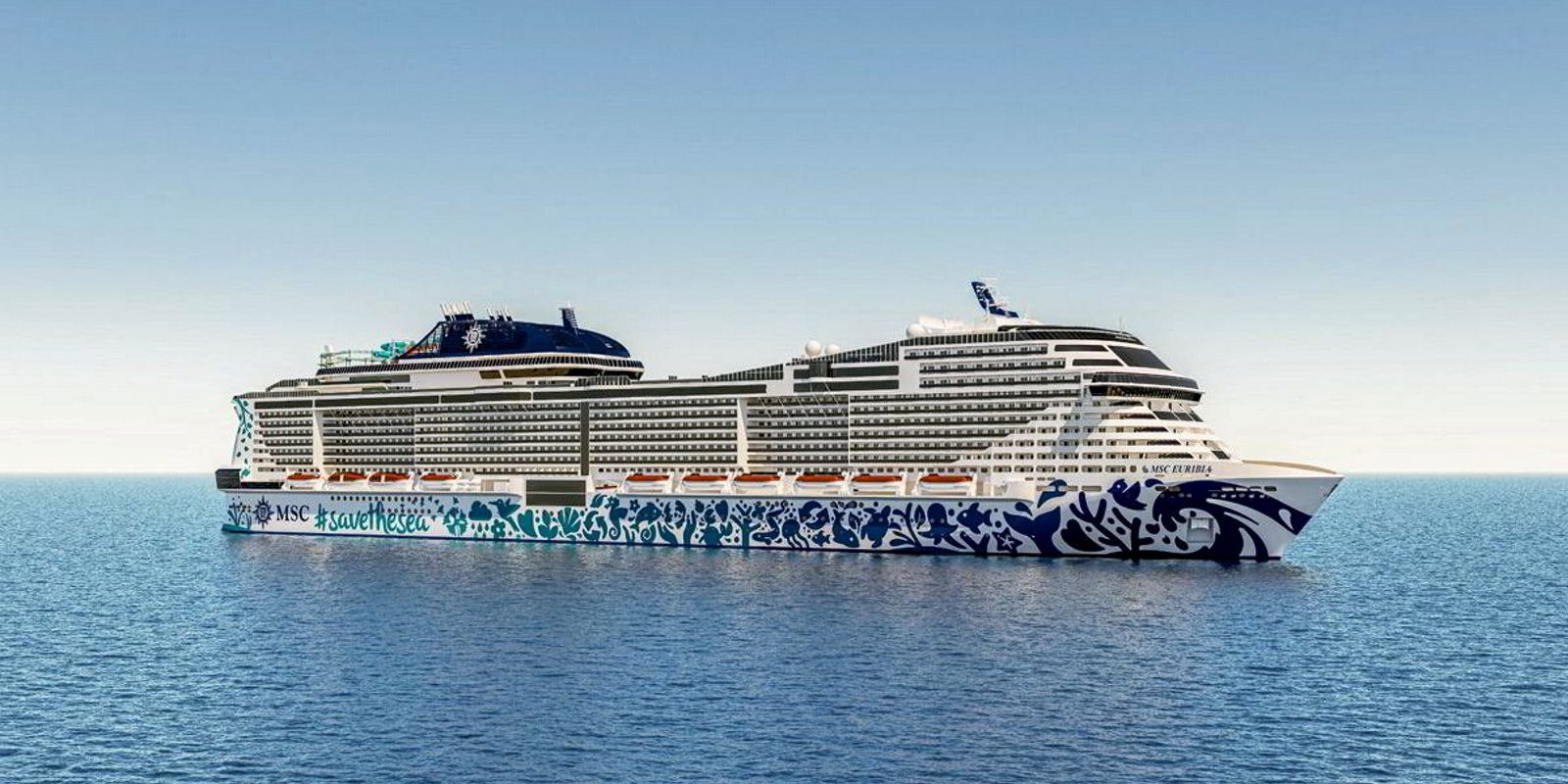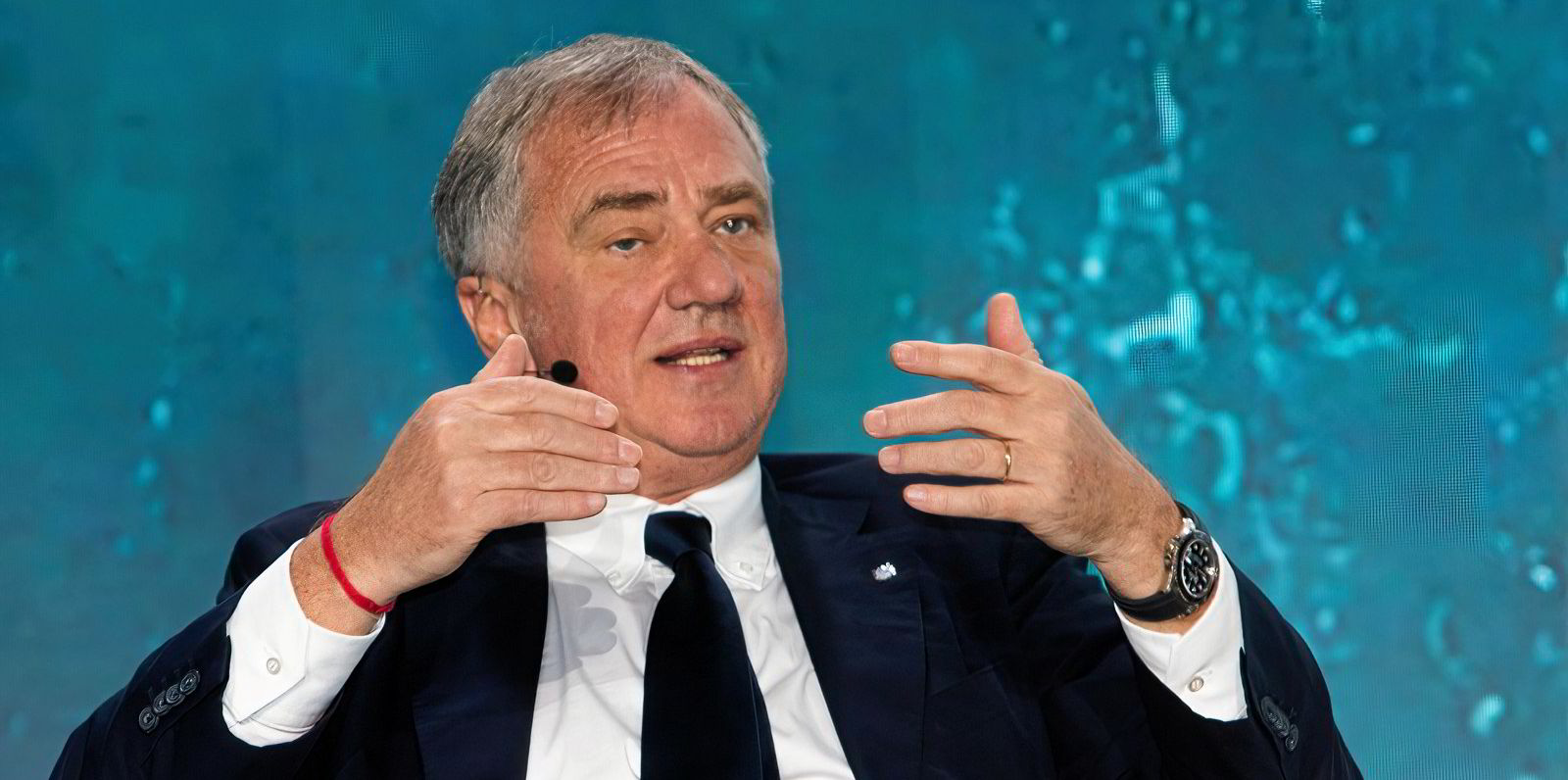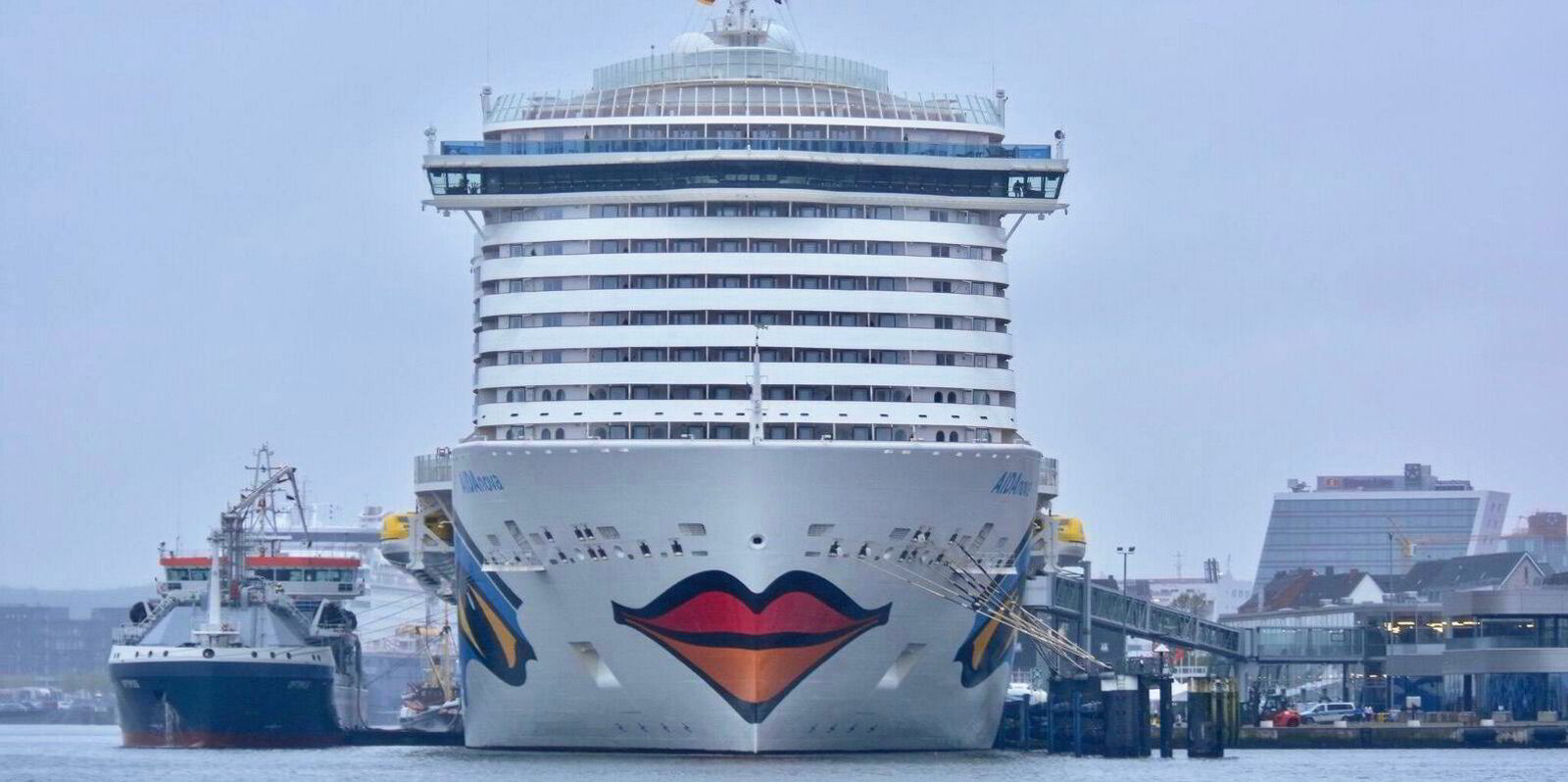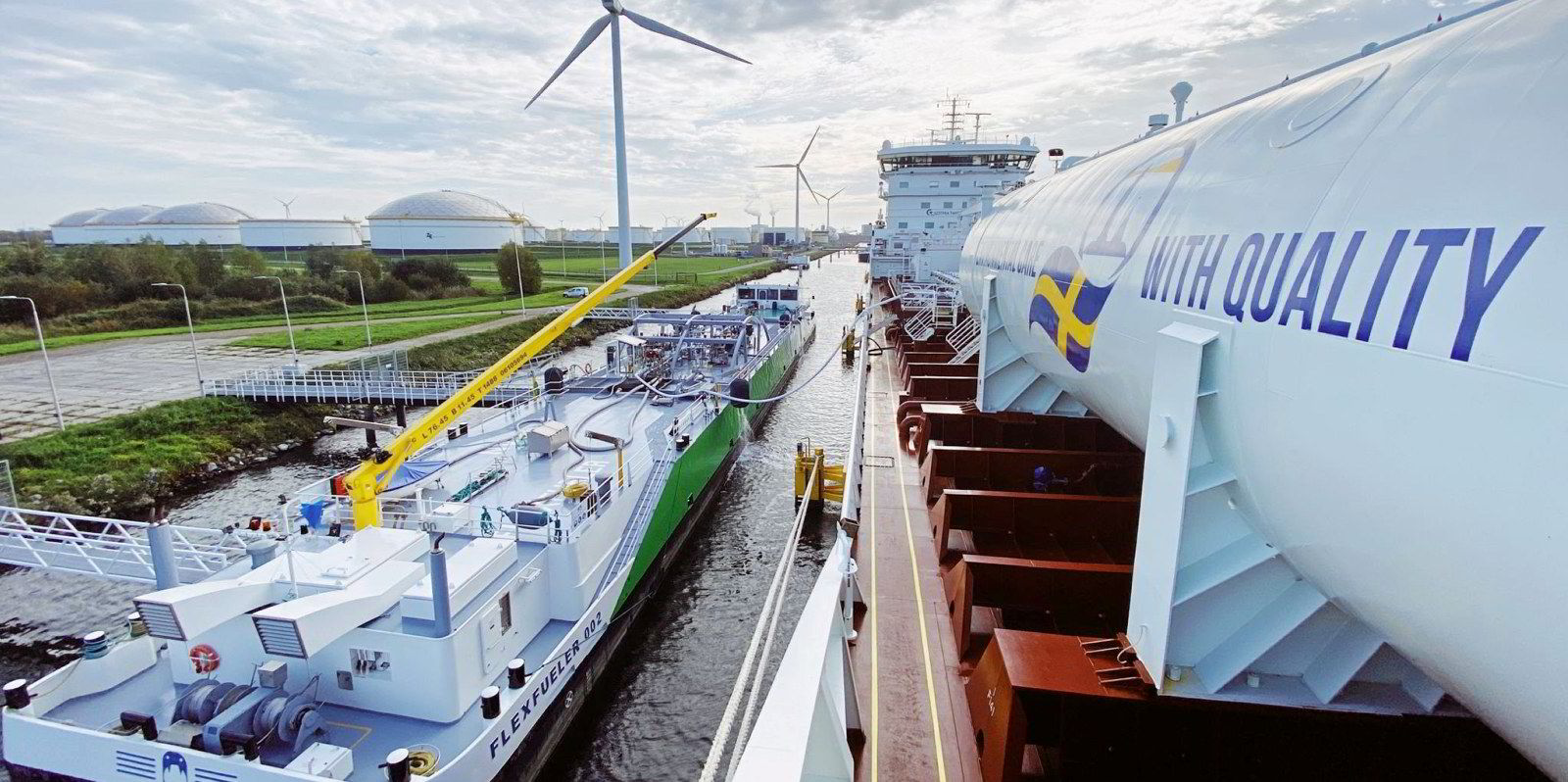An MSC Cruises LNG dual-fuelled cruiseship newbuilding is set to make a pioneering net zero maiden voyage by using bio-LNG.
MSC Cruises said its 6,335-passenger flagship MSC Euribia will leave its builders in Saint-Nazaire, France on 3 June on a four-day voyage to its naming ceremony in Copenhagen scheduled for 8 June and achieve net zero greenhouse gas emissions.
The company said it has bought 400 tonnes of bio-LNG to “show its commitment to the deployment of drop-in renewable fuels and energy transition measures”.
It declared the planned passage a “world first” net zero gas emissions voyage adding that it wants to demonstrate that net zero cruising is possible today.
Finnish biogas producer Gasum is supporting MSC Cruises for this voyage.
MSC Cruises said the net zero sailing will utilise bio-LNG using a mass-balance system under which the entire supply chain will be fully compliant with the European Union’s Renewable Energy Directive and each individual batch of the total bio-LNG produced has been certified by the International Sustainability & Carbon Certification.
The cruise company said the speed and itinerary of the voyage have been designed to optimise engine loads and minimise fuel consumption.
It said energy efficiency specialists from both MSC Cruises and the vessel’s builder Chantiers de L’Atlantique will be on board to work with the ship’s Captain Stefano Battinelli and its chief engineer Pasquale Mastellone.
“MSC Cruises’ shore-based energy efficiency experts based in London will continuously monitor and optimise all systems on board to minimise energy demand, identify additional opportunities to improve energy efficiency in real-time, while maintaining high comfort for all guests on board,” the company said.
“All of the combined initiatives will save energy to reduce fuel consumption.”

MSC Group cruise division executive chairman Pierfrancesco Vago said the voyage “heralds another significant step on our decarbonisation journey”.
The company claims to be the industry’s first deep sea ocean cruise operator to buy bio-LNG as a fuel source that has significant lifecycle emissions reductions.
Vago urged industry players to “work together” to increase the availability of alternative fuels at scale.
“Our purchase of bio-LNG will send a clear and meaningful signal to the market that there is demand from cruise lines and the broader maritime industry for cleaner fuels, but we need governments, producers and end-users to collaborate and scale up the availability of these much-needed and new sources of power,” he said.
MSC Cruises senior vice president Michele Francioni said the voyage should prove the capability to operate on a net zero greenhouse gas emissions basis with existing ship technology.
“This is just the beginning,” he said. “We are committed to this transition and putting in place everything we can do to facilitate it. It cannot be done without alternative fuels such as bio-LNG, e-LNG, green hydrogen or green methanol being made widely available at scale to fully realise the vision of net zero cruising.”





